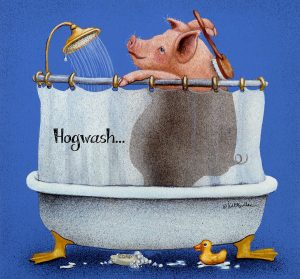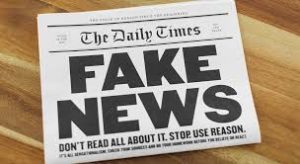 October 2021
October 2021
Successful communities elect capable directors. Stronger and more capable candidates get elected while those lacking in skills and expertise are eliminated. The challenge, in many instances, is the ability of residents to identify those most competent. One of the less discussed traits, in both directors and those electing them, is an ability to detect hogwash – that is, words intended to deceive.

Joshua Quinlan, York University PhD candidate in social-personality research, is an expert in hogwash. This area of research tracks people’s susceptibility to nonsensical statements presented as truth or fact. The field has taken on greater importance in an era of social media, fake news and political statements all intended to deceive.
People, seeking to create logic or understanding where neither exists, are susceptible to deception in the form of misinformation. We want to believe others are making decisions or taking action based on some logical criteria. We prefer to believe people work toward the greater good rather than personal self-interest. This makes them susceptible to individuals skilled at making ridiculous and vague statements with authority and sincerity that sound profound.
In more simplistic terms this can be described as the art of bullshit.
According to Mr. Quinlan, people are wired to seek meaning where none exists. We can be too open-minded leading to a rejection of factual proof. We are charitable in believing statements despite available evidence to the contrary. Mr. Quinlan found that intuitive and reflexive thinkers, those more willing to accept their environment as it is, are more receptive to false information. They are more open to consider new ideas and willing to reject factual evidence. Reflective thinkers, those who analyze and make judgments, are less accepting of ideas or comments lacking factual evidence. Such individuals are better at identifying those peddling nonsense and fake news in the form of statements, ideas, products and services.
Prior to the internet, individuals promoting false information or beliefs had a harder time finding an audience. Today the internet, and social media, offers a large audience to anyone intent on misleading people. In other words, today it is easier to misinform. It is not particularly difficult to find an audience wanting to believe something false.
 Politicians, and condo directors, can often be elected on this pretense. People vote for director candidates “promising lower condo fees” despite any evidence this is possible, reasonable or desirable. They fail to support energy saving initiatives including submetering when failing to believe savings will exceed a nominal monthly fee or initial expenditure despite available evidence. As has been reported in Toronto Condo News and elsewhere, consequences for condo communities succumbing to these peddlers can be severe.
Politicians, and condo directors, can often be elected on this pretense. People vote for director candidates “promising lower condo fees” despite any evidence this is possible, reasonable or desirable. They fail to support energy saving initiatives including submetering when failing to believe savings will exceed a nominal monthly fee or initial expenditure despite available evidence. As has been reported in Toronto Condo News and elsewhere, consequences for condo communities succumbing to these peddlers can be severe.







